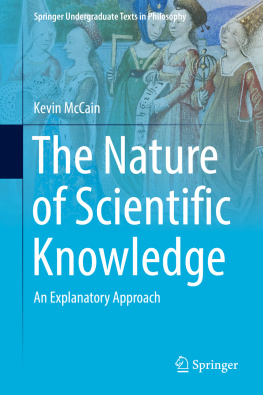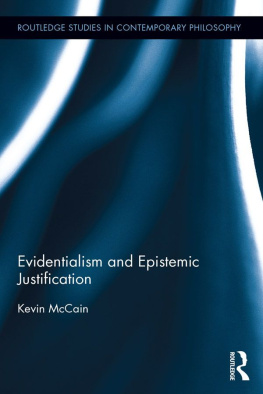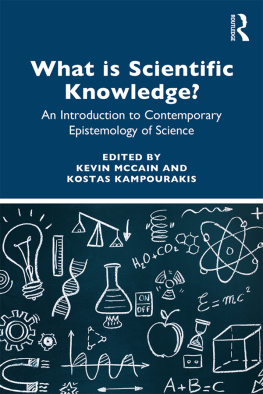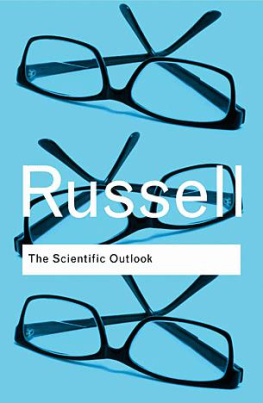1. The Importance of Understanding the Nature of Scientific Knowledge
It is clear that the knowledge gained from the sciences has an enormous impact on our lives every single day. No rational person will deny that scientific knowledge is integral to our daily lives and that in many ways it has made our lives better. Scientific knowledge and its applications allow us to cure and treat various diseases, communicate with people all over the world, heat and cool our homes, travel the world, enjoy various entertainments, and so on. Not surprisingly, science, and the knowledge it produces, is often highly valued.
As we do with many things we value, we encourage people to study the sciences to appreciate and benefit from the scientific knowledge already available as well as to help contribute to the production of new scientific knowledge. It is widely held that merely studying the content of the various sciences is not enough by itself to achieve these goals. One should also learn about the nature of science (NOS) itself. That is to say, one should not simply learn the contents of the current state of scientific knowledge, but also learn about the methods that produce such knowledge and the characteristics of scientific knowledge (Kampourakis).
This widespread advocating of understanding NOS as a primary goal of science education prompts one question immediately: what exactly is NOS? The answer to this question is the focus of intense debate in the science education literature. According to Norman G. Lederman, and others, NOS can be best understood in terms of what Grol Irzik and Robert Nola (
Others claim that this consensus view is mistaken. Some argue that the general features that the consensus view uses to characterize NOS are too broad.
Not only does the consensus view have critics, it also has rivals. Chief among the rivals to the consensus view is the Family Resemblance approach to NOS. Advocates of the Family Resemblance approach maintain that it is useful to understand NOS not as some list of necessary and sufficient conditions for a practice to be scientific, but rather as something that, following Wittgensteins terminology, identifies a family resemblance of features that warrant different enterprises being called scientific (Matthews, p. 595).
Rather than attempting to adjudicate between the consensus view, the Family Resemblance approach, and other conceptions of NOS, the focus in this book will be to provide a philosophical foundation that can help illuminate this debate over the proper understanding of NOS. By exploring, and becoming clear on, core issues in epistemology and philosophy of science this book will provide tools that will help make this debate (and perhaps others in science education) more tractable.
Getting clear about what NOS refers to is very important, and there is serious debate concerning how best to understand NOS. However, our discussion up to this point prompts another key question: why is NOS such an important feature of science education? One answer that springs to mind is simply that the better students understand NOS, the better equipped they will be to become good scientists. After all, it seems plausible that a deeper understanding of the activity you are engaged in will allow you to be better at that activity. The best chess players tend to be those who have a deep understanding of the game of chess. The best carpenters tend to be those who have a deep understanding of construction processes (measuring, leveling, framing, etc.). So, it is not unreasonable to think that the best scientists will tend to be those who have a deep understanding of NOS. More important than the benefit of simply being a better scientist is the benefit of increased scientific literacy. After all, most students will not become professional scientists, but they will all be citizens who may someday need to make decisions about socio-scientific issues. For this reason, of the several other potential benefits of an adequate understanding of NOS that have been identified it seems that 2, 3, and 4 below are the most important:
It is necessary for understanding the process of science and it helps with managing technological objects.
It is necessary for making informed decisions about socio-scientific issues (e.g. global warming, stem cell research, etc.)
It is necessary for fully appreciating the importance of science in contemporary culture.
It helps facilitate an understanding of the norms of the scientific communityparticularly, the moral commitments of this community and how they are valuable to society as a whole.
It aids in the learning of scientific subject matterthe principles and findings of particular sciences.
Not only are these potential benefits intuitively plausible, empirical research has supported the link between increased understanding of NOS and the attainment of these benefits (Feng Deng et al. ).
Of course, given that an adequate understanding of NOS is necessary for obtaining a number of these benefits it follows that one simply cannot possess certain benefits if she has an inferior understanding of NOS. That is to say, without a proper understanding of NOS one cannot truly understand the process of science, make well-informed decisions about socio-scientific issues, or fully appreciate the importance science has in our contemporary culture. To give just one illustration of this, Kostas Kampourakis () persuasively argues that one of the reasons why many people are resistant to accepting evolutionary theory (one of the best confirmed theories in the history of science) is that they fail to properly understand NOS. Specifically, Kampourakis argues that many people fail to distinguish scientific knowledge from other things that they merely believe, but do not really know, and this failure leads them to side against mountains of evidence by not accepting the truth of evolutionary theory. It is not difficult to imagine how this sort of tendency could lead to many uninformed socio-scientific decisions and other errors.
Now that some of the benefits of properly understanding NOS and the wide-spread emphasis on increased understanding of NOS as a premier educational goal have been made clear, yet another question clearly presents itself: how well do students and science educators understand NOS? Unfortunately, the answer to this question is not well at all. Sadly, the longevity of this educational objective [increased understanding of NOS] has been surpassed only by the longevity of students inability to articulate the meaning of the phrase nature of science and to delineate the associated characteristics of science (Lederman and Niess, pp. 838) points out, the overwhelming conclusion that students did not possess adequate conceptions of the nature of science or scientific reasoning is considered particularly significant when one realizes that a wide variety of assessment instruments were used.













